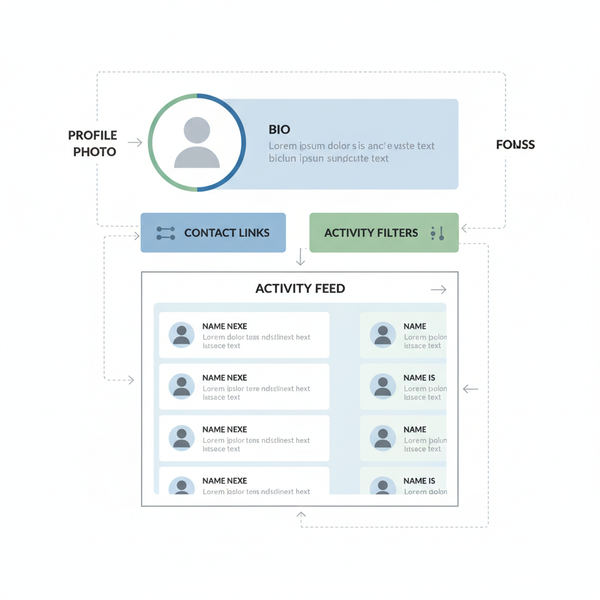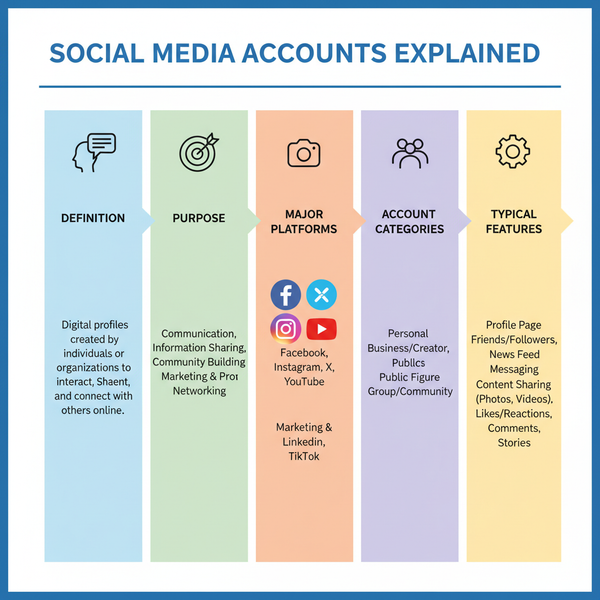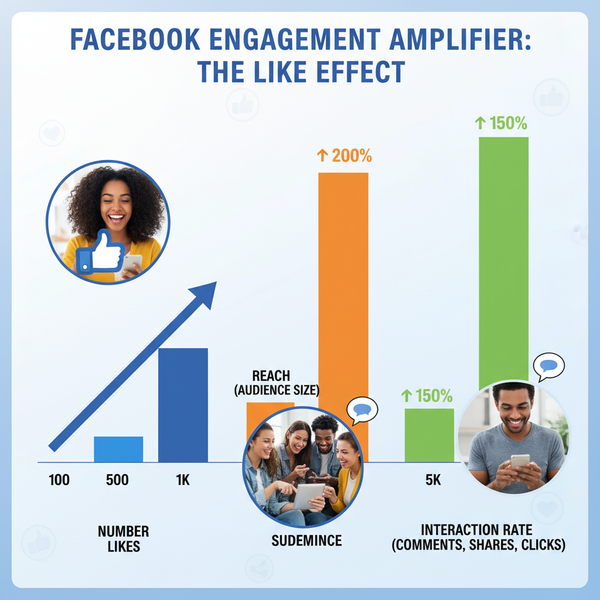Twitter Impressions Checker: Tools and Tips for Engagement
Learn how to check Twitter impressions using native analytics and third-party tools, interpret metrics, and boost tweet visibility and engagement.
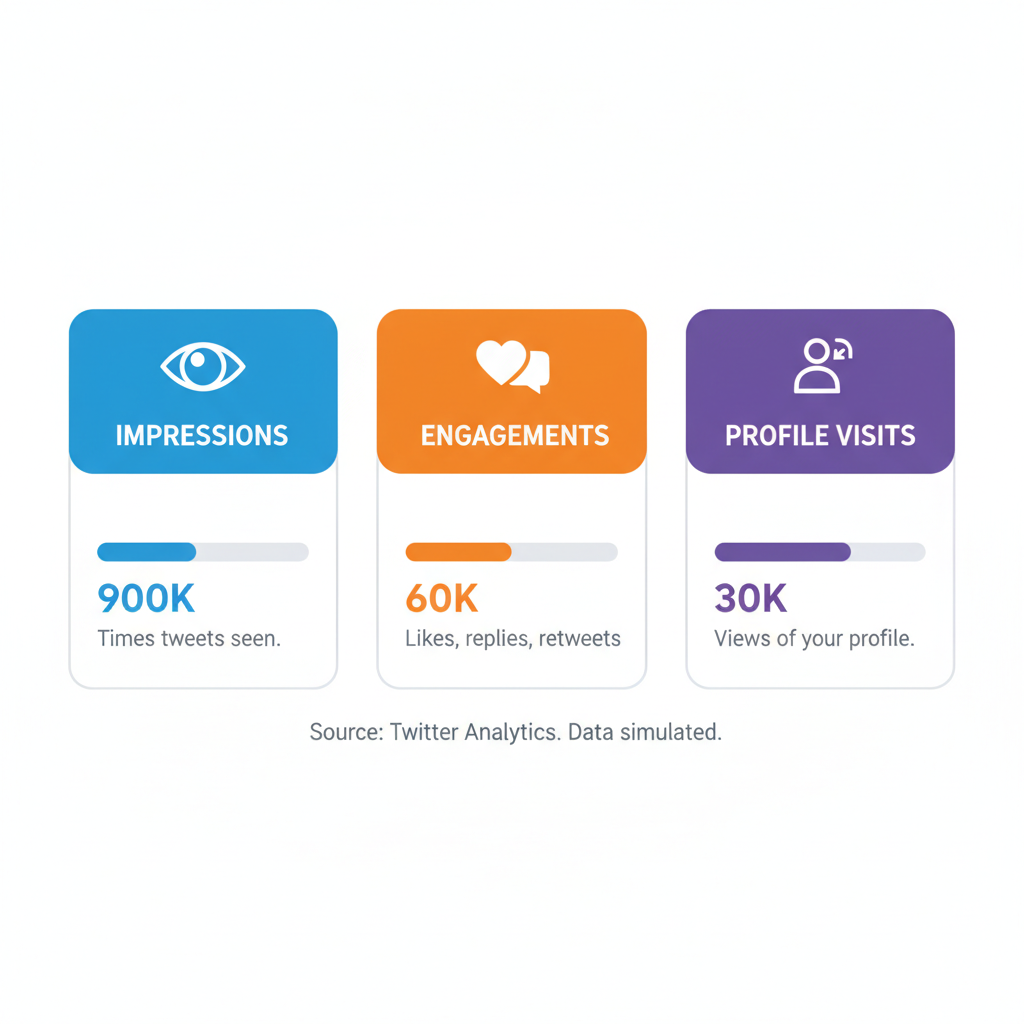
Twitter Impressions Checker: Tools and Tips for Engagement
Twitter is more than just a platform for short thoughts and trending memes — it's a data-rich environment where every tweet generates measurable activity. One of the most valuable metrics you can track is Twitter impressions. Understanding impressions helps you fine-tune content, boost reach, and achieve tangible engagement goals. In this guide, you’ll learn what impressions mean, why they matter, and how to use a Twitter impressions checker effectively for better performance.

---
What Are Twitter Impressions and Why Do They Matter?
In simple terms, Twitter impressions represent the total number of times a tweet has been seen. This includes views on followers’ timelines, retweets, and when your tweet appears in search results or as part of a conversation.
Impressions matter because they:
- Indicate your content’s potential reach
- Help evaluate tweet visibility beyond follower count
- Offer insight into audience exposure
High impressions often precede strong engagement. However, impressions by themselves don’t mean people are interacting — they measure visibility, not action.
---
Impressions vs. Engagements vs. Profile Visits
Although related, these metrics offer different insights:
| Metric | Definition | Purpose |
|---|---|---|
| Impressions | Number of times tweets are displayed to users | Measure visibility and reach |
| Engagements | Total interactions (likes, retweets, clicks, replies) | Gauge content relevance and appeal |
| Profile Visits | Times users clicked to view your profile page | Measure interest in brand or persona |
Understanding these differences ensures accurate measurement of your social media impact.
---
Native Twitter Analytics: Overview & Limitations
Twitter Analytics is built directly into the platform. By accessing it via your profile menu, you can see:
- Impressions per tweet
- Engagement rates
- Audience demographics
- Tweet activity trends
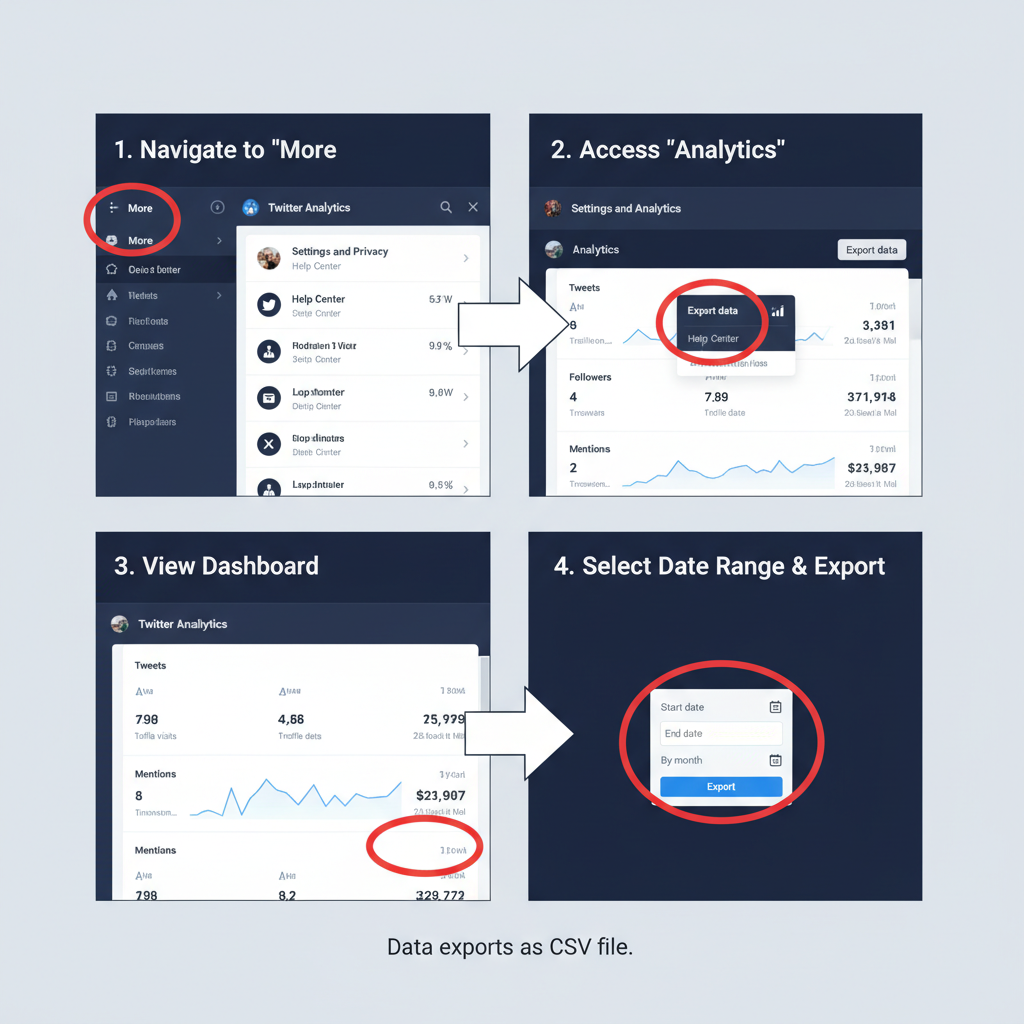
Limitations include:
- Limited historical depth beyond a certain timeframe
- No advanced filtering for hashtags or campaign-specific tracking
- Cannot merge data across multiple accounts in one dashboard
- Basic export functions without deep customization
---
Top Third-Party Twitter Impressions Checker Tools
If you need deeper insights, third-party tools help fill gaps left by native analytics. Popular options include:
- Hootsuite
- Features: Multi-account tracking, engagement analytics, custom reports
- Pricing: Plans from around $99/month
- Sprout Social
- Features: Advanced reporting filters, hashtag tracking, scheduling integration
- Pricing: Starts at $249/month
- TweetReach (by Union Metrics)
- Features: Real-time reach and impression tracking, keyword monitoring
- Pricing: From $49/month
- Brandwatch
- Features: In-depth analytics, sentiment analysis, historical data exports
- Pricing: Custom quotes, enterprise focus
- Buffer Analyze
- Features: Simplified analytics dashboards, visual trends, team reporting
- Pricing: Starts at $35/month
---
Step-by-Step Guide to Accessing and Interpreting Impression Data
1. Access Native Analytics
- Click your profile icon
- Choose Analytics from the menu
- Go to the Tweets tab to view impressions
2. Export Data for Analysis
- Use the export button to download CSV files
- Open in Excel or Google Sheets for custom sorting
3. Interpret Key Metrics
Look for:
- Average impressions per tweet
- High-performing tweets with above-average visibility
- Trend lines showing growth or decline
Date, Tweet Text, Impressions, Engagements, Engagement Rate
2024-05-14, "Our new product launch is live!", 5400, 275, 5.09%
2024-05-15, "Happy to share our latest blog post", 3500, 90, 2.57%---
Using Impression Trends to Refine Timing and Frequency
Patterns in impression data can reveal optimal posting windows, for example:
- Tweets during mid-morning (9–11 AM) might consistently outperform late-night posts.
- Lower weekend impressions could suggest focusing on weekdays.
Regularly review your monthly average impression trends to decide on ideal tweet frequency without flooding timelines.
---
Content Strategies to Increase Impressions Organically
To grow impressions without paid ads:
- Use engaging media: Images, GIFs, and videos attract attention
- Craft strong hooks: First few words matter in capturing interest
- Leverage trending hashtags relevant to your audience
- Post consistently with varied content formats
- Retweet your own best content occasionally for fresh exposure
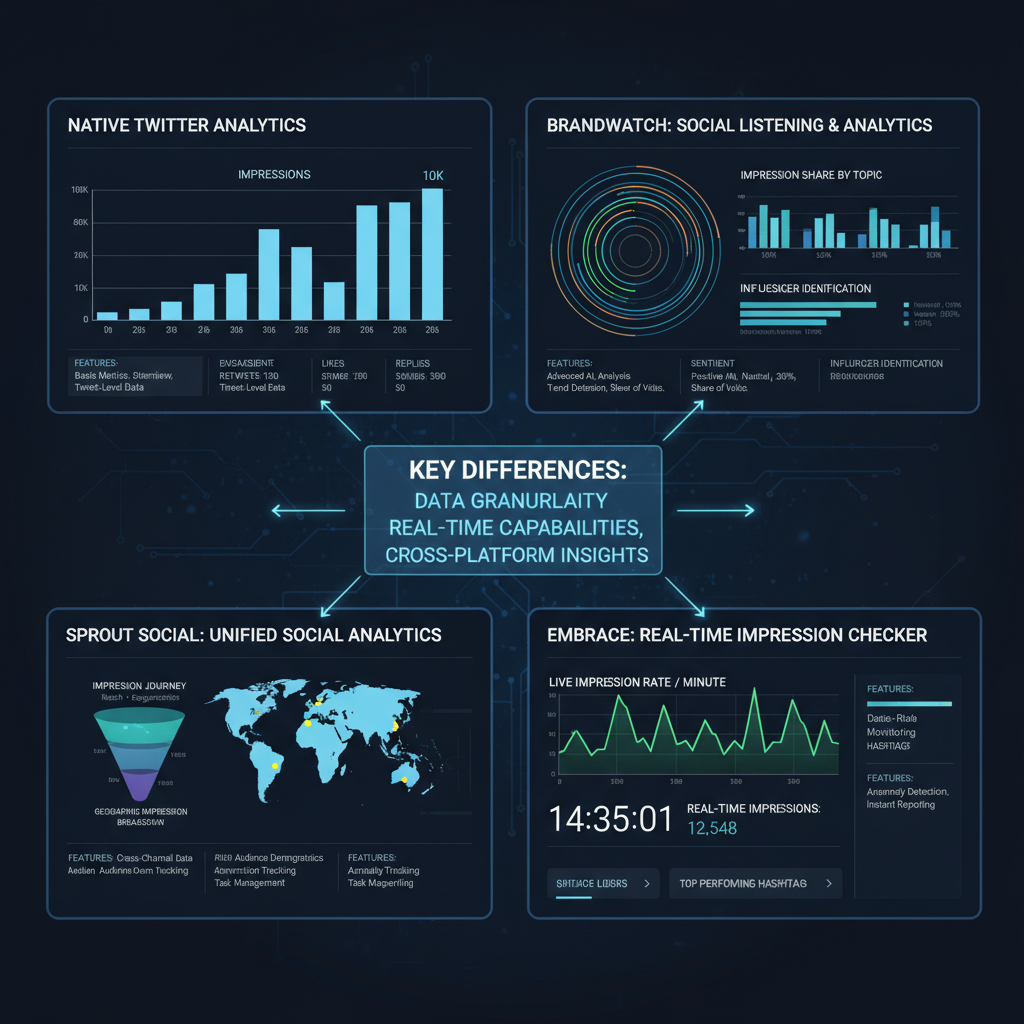
---
Tracking Hashtag Performance Through Impressions Data
Hashtags can drastically impact tweet visibility. By tracking impressions on tweets that include specific hashtags, you can determine which ones amplify reach.
Example approach:
- Run a search on Twitter for your hashtag
- Note impression numbers in analytics for tweets containing it
- Compare across different hashtags to see which performs best
---
Monitoring Impressions for Promoted Tweets and Ads
Promoted tweets guarantee impressions to targeted audiences. In Twitter Ads Manager:
- View impression counts alongside click-through rates
- Segment by audience demographics
- Compare organic vs. paid impression data to measure ROI
---
Integrating Impressions Data into Monthly Social Media Reports
For teams managing multiple platforms, integrating Twitter impressions data into your monthly report provides a comprehensive view of performance.
Structure the report to include:
- Monthly total impressions
- Peaks/drops explanation
- Impressions vs. engagement correlation
- Content highlights with high visibility
---
Common Mistakes When Reading Impressions Stats
Avoid these pitfalls:
- Assuming impressions equal engagement
- Ignoring context of trending events that inflate numbers
- Comparing across accounts without adjusting for follower count differences
- Overlooking long-tail impressions from older tweets that resurface
---
Setting Measurable Goals Based on Impressions Growth Trends
Use impression trends to set SMART goals:
- Specific: Increase average impressions per tweet by 15% in 3 months
- Measurable: Track via native analytics or third-party tools
- Achievable: Use proven content and timing strategies
- Relevant: Tie goals to brand awareness objectives
- Time-bound: Review progress monthly and adjust tactics
---
Summary & Next Steps
Tracking Twitter impressions is essential for understanding your content’s reach and refining social strategies. Native Twitter Analytics offers a foundation, while third-party impressions checker tools provide advanced insights into campaigns, hashtags, and paid promotions. Start monitoring trends today to optimize posting times, shape content strategy, and convert visibility into meaningful engagement.
Call to Action: Ready to boost your Twitter presence? Begin by analyzing your current impression data — then apply the strategies here to grow your reach and interaction rates.

